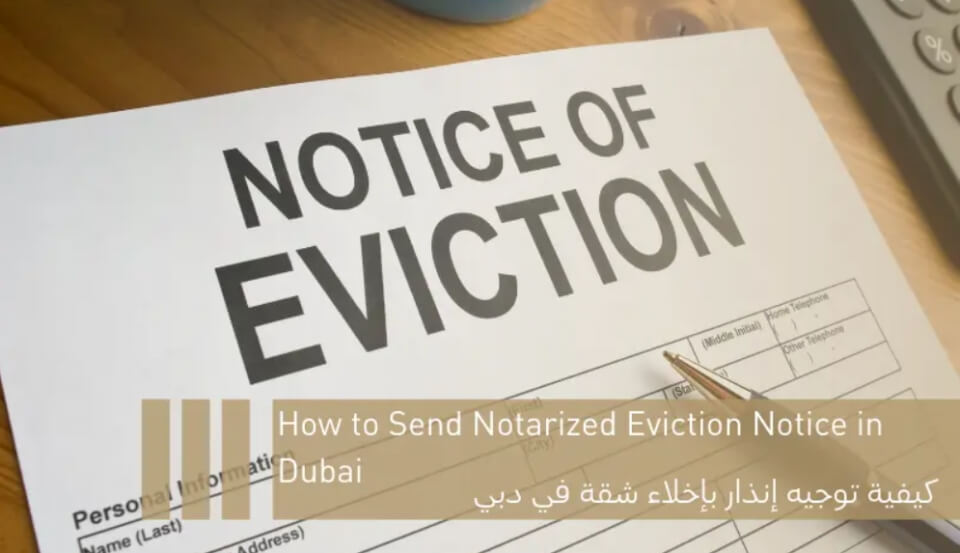أسئلة وأجوبة
How to solve a dispute between and the new landlord and tenant for the actual move-out date?
Hello
There was a rental dispute for a house that had an ownership transfer and there was a difference of opinion between the landlord and the tenant on the move-out date.
The landlord is suing the tenant for the entire period until case resolution, however, the tenant claims to have evicted and did handover with the previous owner, however, he overstayed by a week as per DEWA.
The RERA has now appointed an accounting expert who will check the following details:
1. Verify tenant occupancy or vacating date.
2. Review management records for occupancy details.
3. Check the previous owner's records on the vacating agreement.
4. The broker who confirmed move-out has PoA.
5. Verify ownership transfer notification to tenant.
6. Check DEWA for service disconnection details.
7. Assess rent due from 09/20/2024 – 10/11/2024 and payment status to new landlord.
I would like to know what the CA would do, who does it favor, and what kind of proofs are needed to be provided.
What if the CA cannot verify the house vacancy?
Greetings,
In rental disputes involving ownership transfers, the court-appointed accounting expert (CA) will primarily verify the tenant’s vacating date and rent obligations. Based on your case, the CA will:
- Examine occupancy records, DEWA disconnection, and management reports to determine the actual vacating date.
- Verify if the previous owner had the authority to accept the handover.
- Assess rent liability for the disputed period (09/20/2024 – 10/11/2024).
Who Does This Favor?
If you have clear proof of vacating (handover records, communications, DEWA disconnection, etc.), this strengthens your case.
If the CA cannot verify the vacancy, the landlord’s claim for rent might be upheld.
To protect your rights and present strong evidence, we recommend legal representation. Book a consultation with "Future Vision for Advocacy and Legal Consultancy" for expert guidance or legal representation in your case.
We are happy at Future Vision Law Advocates and Legal Consultancy to assist you and provide the best legal services that meet your needs.
To contact us, you can call or WhatsApp us.
Dear M.,
Thank you for reaching out regarding your rental dispute. Based on the information provided, here’s what you can expect in terms of the Certified Accountant (CA) appointed by RERA and the potential impact on your case:
1. Role of the Certified Accountant (CA):
The CA will primarily be responsible for verifying the following:
Tenant’s occupancy and move-out date: They will check DEWA records and other relevant documents to confirm the tenant's vacating date.
Review of management and ownership transfer records: The CA will review the transfer of ownership and any relevant agreements regarding the vacating process.
Verification of payment records: The CA will confirm the rent due for the disputed period and check the payment status to the new landlord.
2. Impact of the CA’s Findings:
The CA’s report will be impartial and based on available evidence. Their findings will favor whichever party provides the most substantial proof of their claims, including:
For the tenant: Evidence of the vacating date (e.g., DEWA disconnection, move-out agreement).
For the landlord: Proof of continued tenancy beyond the agreed move-out date, with evidence of unpaid rent during the disputed period.
3. Proofs You May Need to Provide:
As a tenant, it is important to gather the following evidence:
DEWA records confirm the disconnection or transfer of utilities.
Written confirmation from the previous landlord regarding the move-out date.
Payment receipts or bank statements showing payments made to the new landlord.
Any correspondence with the new landlord regarding the transfer of ownership and rent payments.
4. What Happens If the CA Cannot Verify the House Vacancy:
If the CA cannot verify the move-out date, the case may become more complex, and additional evidence may be required from both parties.
The court could rely on testimony or other documentation to determine the appropriate rent due.
Please let me know if you need further assistance or guidance in gathering the necessary evidence. I am happy to help you navigate this situation further.
Best regards,
Mohammed Salah
Legal Consultant
Hello,
The CA will review various records such as utility bills (e.g., DEWA), any communication between the tenant and the previous owner, and possibly the landlord's records to verify when the tenant vacated the property and whether the claim of a move-out date is accurate.
The CA will inspect property management records, which should contain dates of lease commencement, any lease amendments, move-in and move-out reports, and correspondence with the tenant and landlord.
If the CA finds that the tenant provided proper notice, vacated the property as per the agreement with the previous owner, and paid rent for the period due, the tenant’s position will be stronger.
If the tenant has documentation showing they moved out on time (or with a week’s overstay only), it could indicate that the new landlord is attempting to claim rent beyond the actual period the tenant occupied the property.
If the CA finds discrepancies such as the tenant overstaying, failing to pay rent to the new owner (from 09/2024 – 10/2024), or not notifying the new owner properly, it could support the landlord’s claim for rent payment until the case is resolved.
The outcome will depend on the CA’s findings, the available evidence, and how the court interprets the situation.
Dear Sir/Madam,
Thank you for your inquiry regarding the rental dispute involving the ownership transfer and differences in opinion on the move-out date.
Based on the details provided, I understand that a RERA-appointed accounting expert will review several aspects of the case.
Below is an overview of what the expert will assess, who this process may favor, and the implications if the house vacancy cannot be verified.
Role of the Accounting Expert
The appointed accounting expert will verify and analyze the following:
1. Tenant Occupancy or Vacating Date: Confirm whether the tenant vacated as claimed or overstayed beyond the agreed date.
2. Management Records: Review records maintained by property management for occupancy details.
3. Previous Owner’s Records: Examine any vacating agreements made between the tenant and the previous owner.
4. Broker’s Authority: Verify whether the broker who confirmed the move-out had a valid Power of Attorney (PoA).
5. Ownership Transfer Notification: Assess whether the tenant was formally notified about the ownership transfer.
6. DEWA Service Disconnection: Check DEWA records to confirm disconnection dates and correlate them with tenant occupancy.
7. Rent Assessment: Calculate rent due for the disputed period (09/20/2024 – 10/11/2024) and confirm payment status to the new landlord.
Who Does It Favor?
The outcome depends on the evidence presented:
- If records show that the tenant vacated as claimed and properly handed over to the previous owner, it may favor the tenant.
- If there is insufficient evidence to prove vacating or if DEWA records indicate continued occupancy, it may favor the landlord.
Proofs Required
Both parties should provide:
1. Tenant’s Proofs:
- Signed vacating agreement with previous owner or broker (if applicable).
- DEWA disconnection confirmation.
- Communication records (emails, letters) regarding move-out notification.
- Evidence of handing over keys or property access.
2. Landlord’s Proofs:
- Ownership transfer documents and notifications sent to the tenant.
- DEWA records showing service continuity during the disputed period.
- Proof of non-payment for rent during 09/20/2024 – 10/11/2024.
If Vacancy Cannot Be Verified
If the accounting expert cannot conclusively verify the vacancy:
- The Rental Disputes Center (RDC) may rely on circumstantial evidence, such as DEWA service continuity or lack of formal handover documentation.
- This could lead to a judgment favoring either party based on available evidence and legal arguments.
Recommendations
1. Ensure all relevant documents are submitted to RERA and RDC promptly.
2. Engage legal counsel specializing in rental disputes to represent your interests effectively.
3. Maintain clear communication with all parties involved, including brokers and property management.
Should you require further clarification or assistance, please do not hesitate to contact us.
Yours sincerely,
ABDUL WAHIED
In this case, the chartered accountant appointed by the Real Estate Regulatory Authority (RERA) will act as the accounting expert to analyze the financial documents and transactions related to the dispute.
They will focus on verifying the financial liabilities owed, confirming the rent paid, and the periods during which the tenant actually occupied the property, based on available evidence.
The accounting expert will request and review the following documents:
- The original tenancy agreement and any documented renewals.
- The transfer notice and proof of the tenant's notification of the new landlord.
- The electricity and water consumption record from DEWA, which may indicate whether the tenant used services after the scheduled eviction date.
- The property or residential complex management records to record the tenant's entry and exit and any use of services.
- Any signed agreements or receipt and handover minutes between the previous landlord and tenant.
- Certificates or confirmations from the real estate broker regarding the eviction process and power of attorney, if applicable.
- Any documented payments to the new landlord and relevant bank account details.
If the forensic accountant is unable to conclusively verify the vacancy of the property due to a lack of conclusive evidence, the final decision may rely on other evidence such as DEWA records, handover records, and witness or real estate broker testimony.
In this case, the court or Rental Dispute Resolution Authority may have to make a decision based on the totality of the available evidence, including the accountant's report, to determine whether the tenant is responsible for any additional rent after the disputed period.








